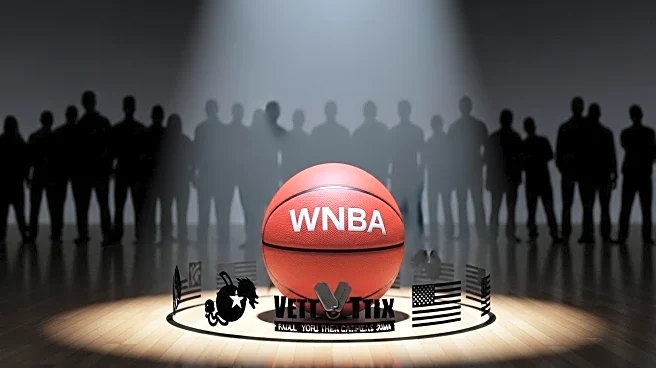What's Happening?
Minnesota Lynx star Napheesa Collier has publicly criticized the leadership of the WNBA, specifically targeting Commissioner Cathy Engelbert. During her 2025 exit interview, Collier expressed dissatisfaction
with the league's management, stating that while the WNBA boasts the best players and fans, it suffers from poor leadership. Collier's comments have resonated with several league veterans, including Los Angeles Sparks' star forward Dearica Hamby, who have voiced their support. Additionally, Sparks legend Candace Parker discussed the issue on her podcast, highlighting the lack of defense for Engelbert and emphasizing the importance of player support from the league's leadership.
Why It's Important?
Collier's criticism of the WNBA leadership underscores ongoing concerns about the league's management and its impact on players. The support from veterans like Hamby and Parker suggests a broader dissatisfaction among players, which could influence upcoming collective bargaining agreement negotiations. The players' call for better leadership and accountability may lead to significant changes in how the league is managed, potentially affecting player welfare, league policies, and the overall growth of women's basketball in the U.S.
What's Next?
As the WNBA approaches its collective bargaining agreement negotiations, Collier's statements may add pressure on Commissioner Engelbert and the league office to address player concerns. The support from high-profile players could lead to increased scrutiny of the league's leadership and potentially drive reforms aimed at improving player relations and league operations. Stakeholders, including team owners and sponsors, may also weigh in on the issue, seeking to ensure the league's stability and growth.
Beyond the Headlines
Collier's critique of the WNBA leadership highlights broader issues of governance and accountability in professional sports. The situation raises questions about the ethical responsibilities of sports leagues to their players and fans, and the cultural dynamics within women's sports. The players' demand for better leadership could inspire similar movements in other sports leagues, advocating for improved management and player support.











